I have warned repeatedly that Australia’s labour market has been living in a ‘fool’s paradise’.
The nation’s unemployment rate remains historically low at 4.3% and the Reserve Bank of Australia (RBA) expects unemployment to remain at this low level.
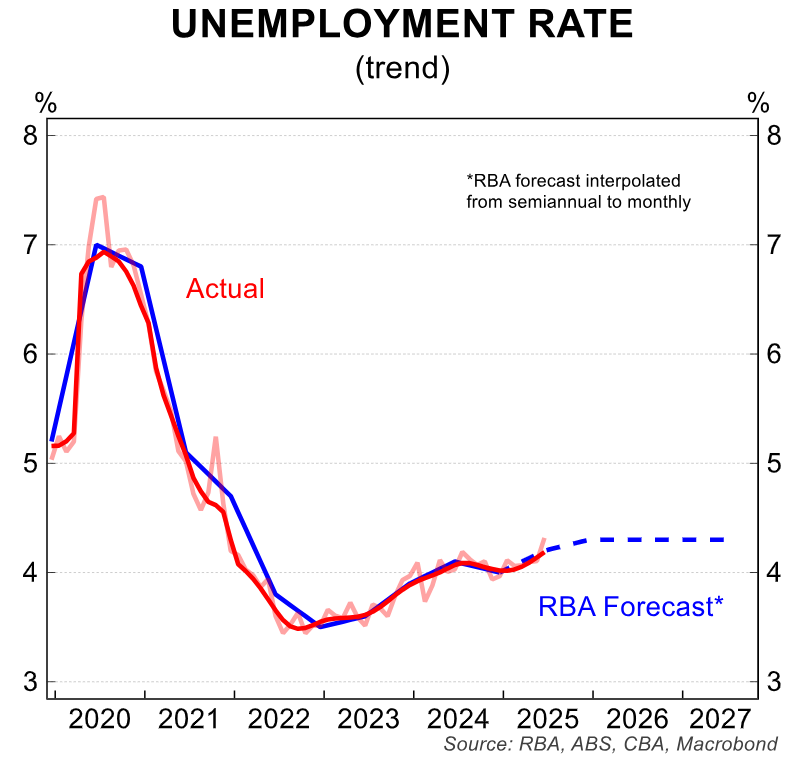
However, Australia’s labour market is not nearly as rosy as the official unemployment suggests.
First, Roy Morgan’s alternative unemployment rate, which effectively considers anybody unemployed if they want a job but are not working, has shot up in recent months.
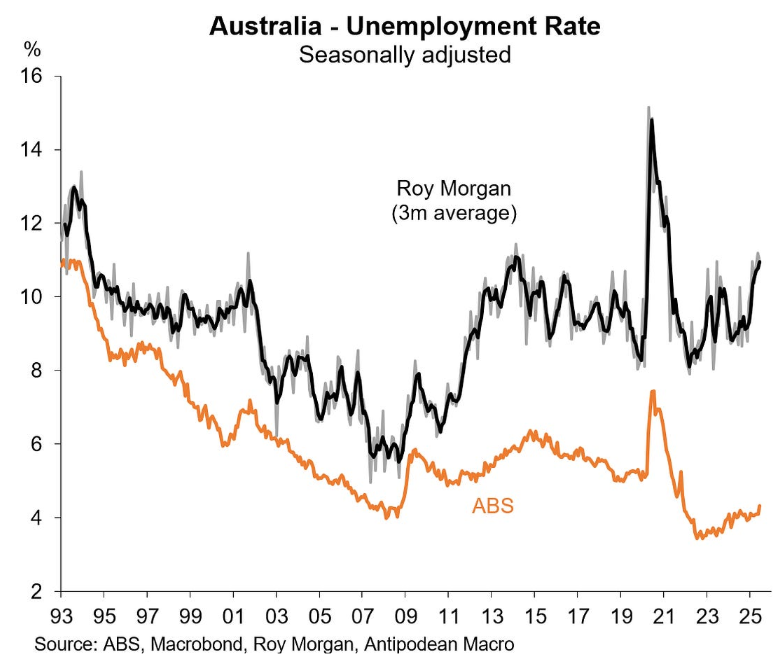
Second, alternative measures of the labour market, such as SEEK’s job ads and applications per job ad data, suggest that the labour market has softened materially.
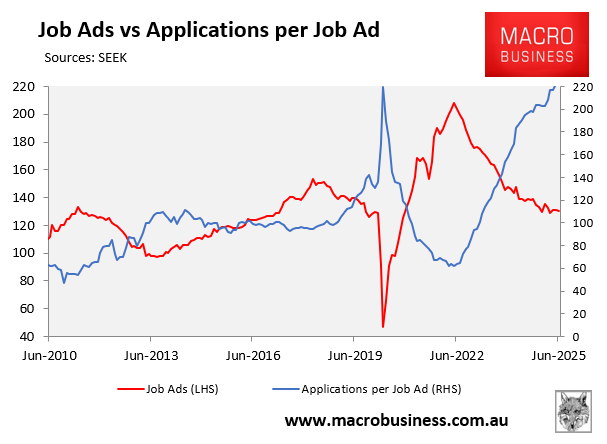
Jobs & Skills Australia’s internet vacancies index also points to higher unemployment:
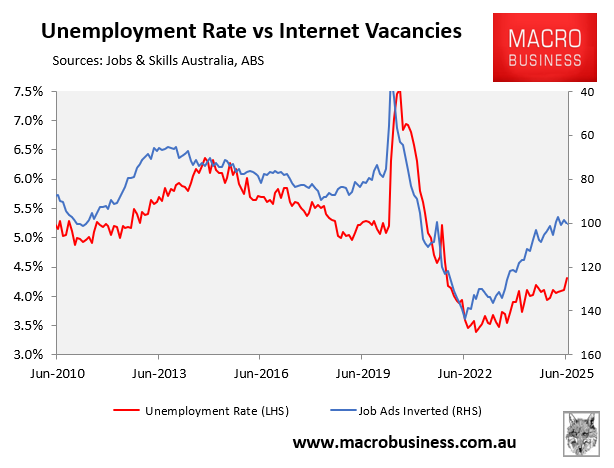
Most importantly, around 80% of jobs created over the past two years have been in the non-market sector, meaning they are reliant on government funding.
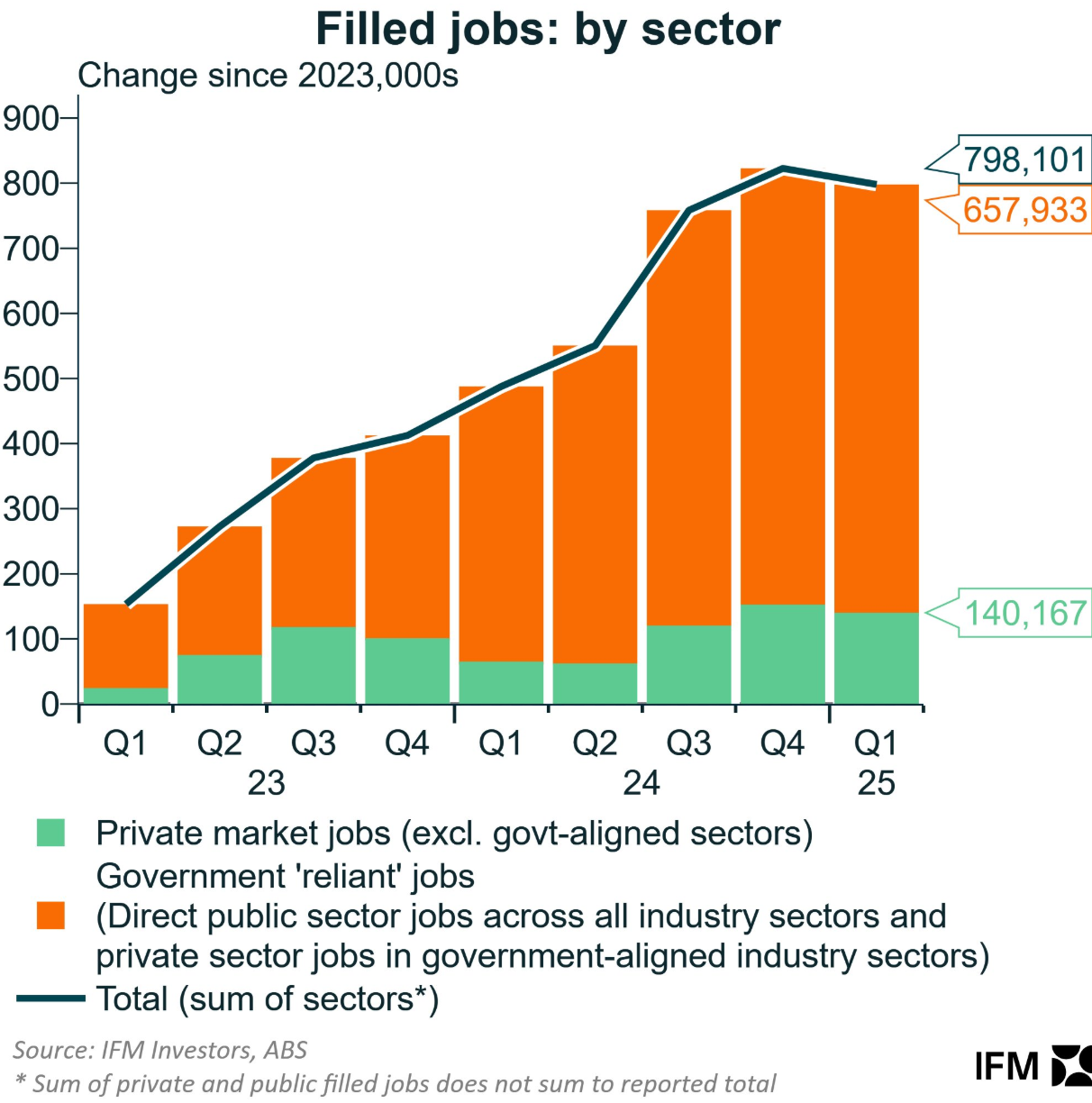
As illustrated above by Alex Joiner from IFM Investors, the non-market sector generated around 658,000 between Q1 2023 and Q1 2025, dwarfing the 140,200 jobs created in the market (private) sector.
The risk ahead is that this non-market job creation falls and there is not an adequate handover to the private sector. Given the strong growth in the labour force via net overseas migration, such a scenario would imply a sharp increase in unemployment.
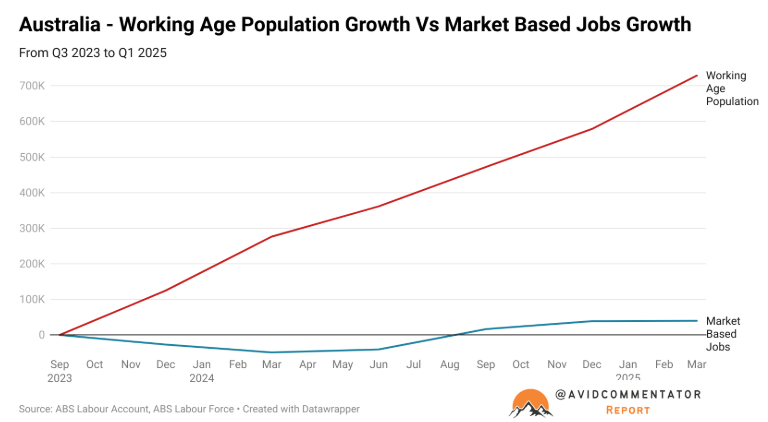
Indeed, with state and federal budgets stretched and focused on cost-cutting, there is the real risk that jobs in the non-market sector could shrink.
For example, the Victorian government announced in its latest state budget plans to cut 2,000 to 3,000 public sector jobs as part of a broader effort to reduce spending and streamline operations.
However, estimates suggest that the government may lay off up to 6,500 workers.
In a similar vein, the NSW government has announced that more than 1,500 roles will be axed in a fortnight.
“Multiple agencies have begun letting go of thousands of staff”, noted The Mandarin on Wednesday.
The federal government is also under pressure to stem the cost of the NDIS, which has driven the recent expansion of non-market jobs.
One thing is for certain: the boom in non-market jobs is over. Now comes the era of austerity.
With Australia’s private sector struggling to take the reins and the federal government continuing to import large volumes of migrant workers, there is the genuine threat that Australia’s unemployment will soar.

